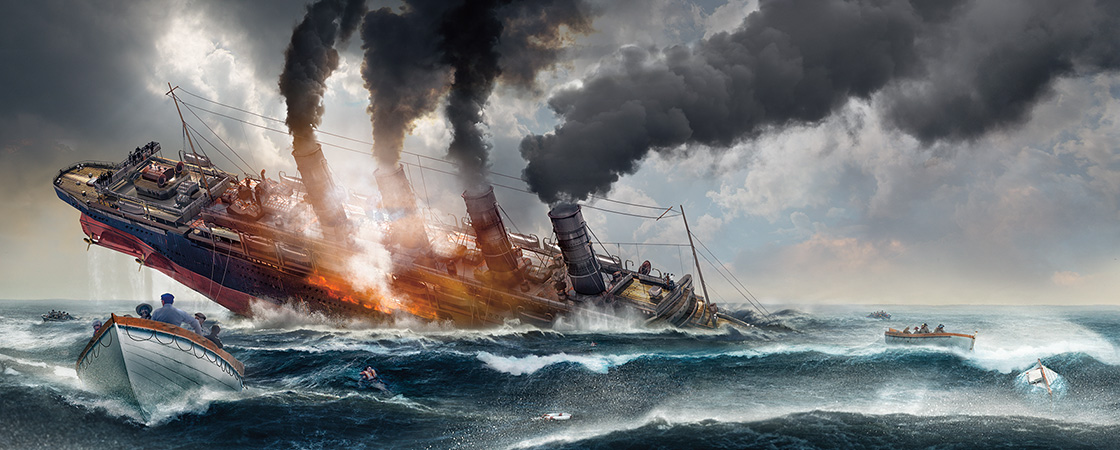Bettmann Archive/Getty Images
Elsie Hook
The morning of May 1, 1915, dawned warm and drizzly in New York City. Twelve-year-old Elsie Hook, her 11-year-old brother, Frank, and her father, George, were about to board one of the most spectacular ships in the world.
Elsie was filled with excitement as she hurried up the gangway. The pier around her vibrated with activity. Crew members were barking orders. Motorcars and buggies were depositing passengers and their mountains of luggage. A band was playing. And throngs of reporters and curious onlookers were scrambling to catch a glimpse of the RMS Lusitania—a ship so magnificent it was called a “floating palace.”
Elsie must have gazed in wonder at the Lusitania’s four towering steel funnels, which gleamed in the rays of sunshine that briefly pierced the gray clouds. She must have marveled at the ship’s shiny black hull, which stretched the length of more than two football fields. She must have felt glamorous to be traveling to England on a ship as grand as a fancy New York hotel.
But as the Lusitania steamed out of New York Harbor, there was something Elsie could not have known: Thousands of miles away, another boat had also headed out to sea. It was a German war submarine, or U-boat.
And in just six days, that U-boat would tear the Lusitania apart.
On the morning of May 1, 1915, New York City was warm and drizzly. Twelve-year-old Elsie Hook was with her 11-year-old brother, Frank, and her father, George. They were about to board one of the most spectacular ships in the world.
Elsie hurried up the gangway with excitement. The pier vibrated with activity. Crew members barked orders. Motorcars and buggies dropped off passengers and their luggage. A band played. And throngs of reporters and onlookers tried to catch a glimpse of the RMS Lusitania—a ship so magnificent it was called a “floating palace.”
Elsie probably gazed in wonder at the ship’s four towering steel funnels. She likely marveled at the ship’s shiny black hull. It stretched the length of more than two football fields. She must have felt glamorous to be traveling to England on a ship as grand as a fancy hotel.
But as the Lusitania left the harbor, there was something Elsie could not have known: Thousands of miles away, another boat had also headed out to sea. It was a German war submarine, or U-boat.
And in just six days, that U-boat would tear the Lusitania apart.



